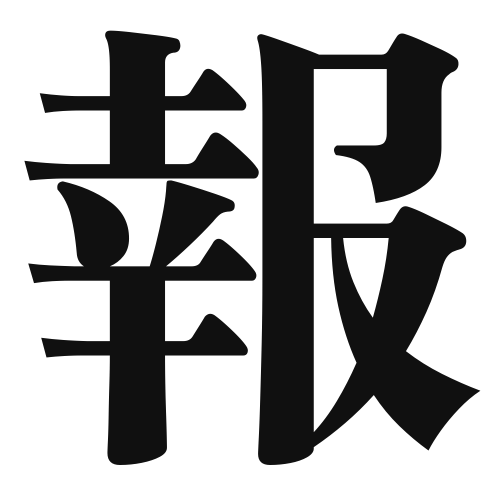1. Overview of Meaning
The kanji “報” (hō) primarily means “report,” “news,” or “information.” It conveys the idea of conveying or delivering information to others.
2. Formation and Radical
The kanji “報” is a compound character (会意文字) that combines two elements: the radical “報” (to report) and the phonetic component “包” (to wrap). The character suggests the act of wrapping information and delivering it.
The radical of “報” is “報” itself, which relates to reporting or informing.
3. Examples of Usage
Common words and phrases that include “報” are:
- 報告 (hōkoku) – report
- 情報 (jōhō) – information
- 報酬 (hōshū) – reward
Example sentence in daily conversation:
「彼は新しいプロジェクトについての報告をしました。」
(He gave a report about the new project.)
4. Synonyms and Antonyms
Similar kanji with related meanings include:
- 通知 (tsūchi) – notification (more formal and often used in official contexts)
- 連絡 (renraku) – contact (implies communication rather than formal reporting)
Antonyms include:
- 隠す (kakusu) – to hide (the opposite of reporting or revealing information)
5. Cultural and Historical Background
The kanji “報” has significant relevance in Japanese culture, especially in the context of communication and information sharing. It is often used in business and formal settings to denote the importance of reporting and accountability.
Proverbs and idiomatic expressions that include “報” are:
- 「報いを受ける」 (mukui o ukeru) – to receive a reward or punishment, emphasizing the consequences of one’s actions.
